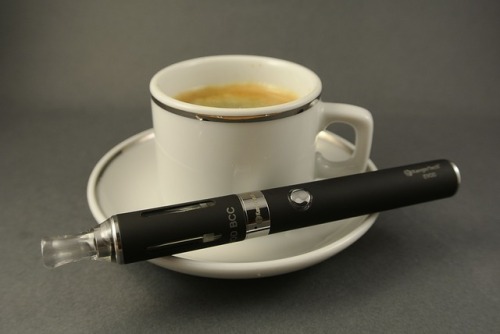Vaping liquids, or “e‐juices” are the most controversial subject when it comes to the world of vaping. It’s basically the subject of every debate there is about vaping, and how “dangerous” vaping can
be.
Most people don’t have a problem with flavoring additives, which can range from natural, to artificial additives, and even menthol crystals. Just make sure that the flavoring additives are safe and food‐grade. Again, most reputable e‐juice makers will use safe, food‐grade flavoring additives. Finally, here is the most problematic part of e‐juices worldwide: the liquid nicotine.
"A White House office deleted language in a recently introduced tobacco regulation that would have removed flavored e-cigarettes from the market until they had been authorized by the Food and Drug Administration, an edited version of the document shows.
On May 5, the FDA released a final rule extending its tobacco authority to include e-cigarettes, pipe tobacco, cigars and hookah. The rule becomes effective in early August. Under the rule, companies must seek marketing authorization for any tobacco product introduced after Feb. 15, 2007.
The rule gives manufacturers a grace period of up to two years to submit marketing applications, during which they can continue to sell their products. They can sell them for an additional year while the FDA completes its review.
As submitted by the FDA to the White House Office of Management and Budget (OMB), the rule gave a grace period for flavored products of only 90 days after the rule became effective."
Now, if you are using an e‐juice that does not contain nicotine, then you would have no problems, but most e‐juices actually do contain nicotine, and this is where a lot of people debate the issue of vaping safety.
"Public health advocates have long called for flavored tobacco products to be banned, saying flavors such as bazooka Joe Bubble Gum and Cotton Candy are designed to appeal to children.
The FDA provided pages of data and scientific studies in support of its plan, noting "a dramatic rise in youth and young adult use of typically flavored tobacco products, like e-cigarettes and waterpipe tobacco, and continued youth and young adult use of cigars."
The OMB deleted both the FDA's planned policy and the rationale for the policy.
A White House spokeswoman, Emily Cain, said the OMB "does not comment on changes made during the interagency review process." The FDA also does not comment, FDA spokesman Michael Felberbaum said.
In its originally submitted rule, the FDA said it recognized that numerous flavored products would come off the market within 180 days of the rule's publication "and that this will significantly impact the availability of flavored tobacco products at least in the short term."
The OMB deleted both the FDA's planned policy and the rationale for the policy.
A White House spokeswoman, Emily Cain, said the OMB "does not comment on changes made during the interagency review process." The FDA also does not comment, FDA spokesman Michael Felberbaum said.
In its originally submitted rule, the FDA said it recognized that numerous flavored products would come off the market within 180 days of the rule's publication "and that this will significantly impact the availability of flavored tobacco products at least in the short term."
But it said the move was important because tobacco products with characterizing flavors, including menthol but excluding tobacco flavor, were attractive to young people."
The most important question to answer is: is liquid nicotine dangerous? Yes and no, depending on how you take the nicotine into your body. Liquid nicotine is dangerous in liquid form when ingested, inhaled, or it comes into contact with soft skin tissue. It can cause nausea, vomiting, rapid heart rate, and in the most extreme cases, even coma and death. So yes, liquid nicotine is dangerous and should be handled with extreme caution.

